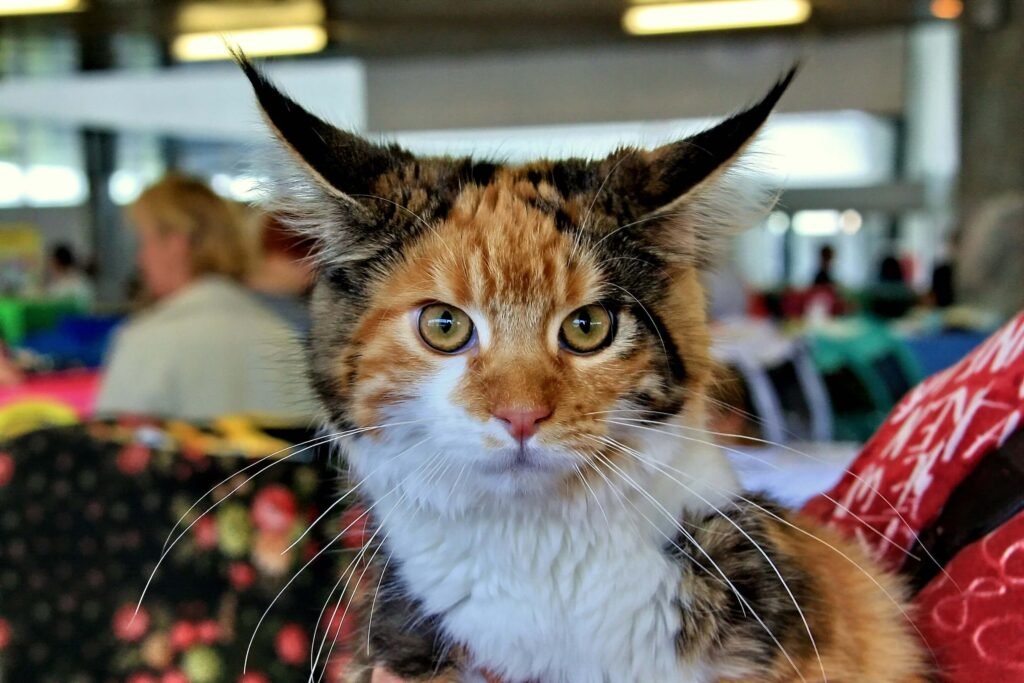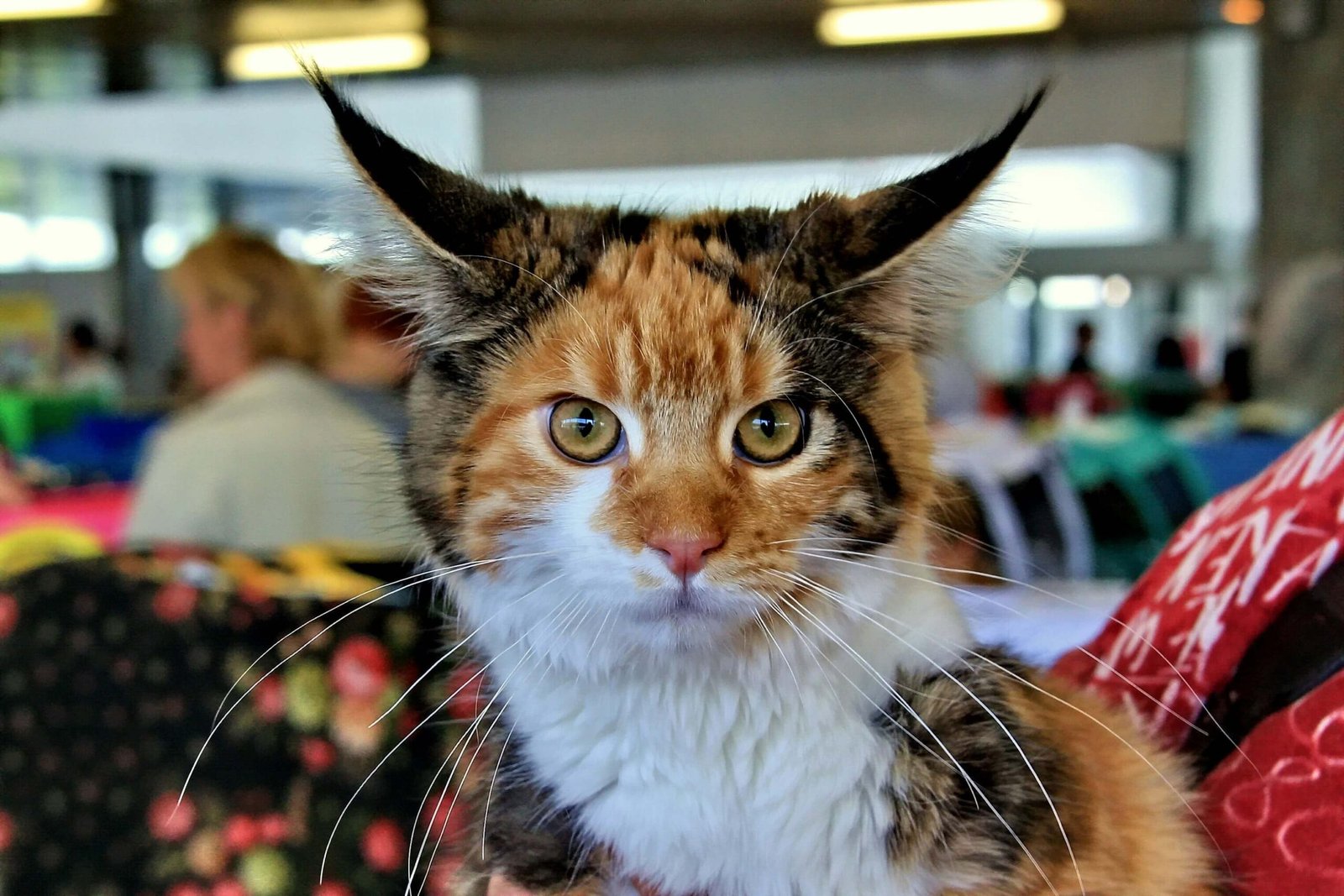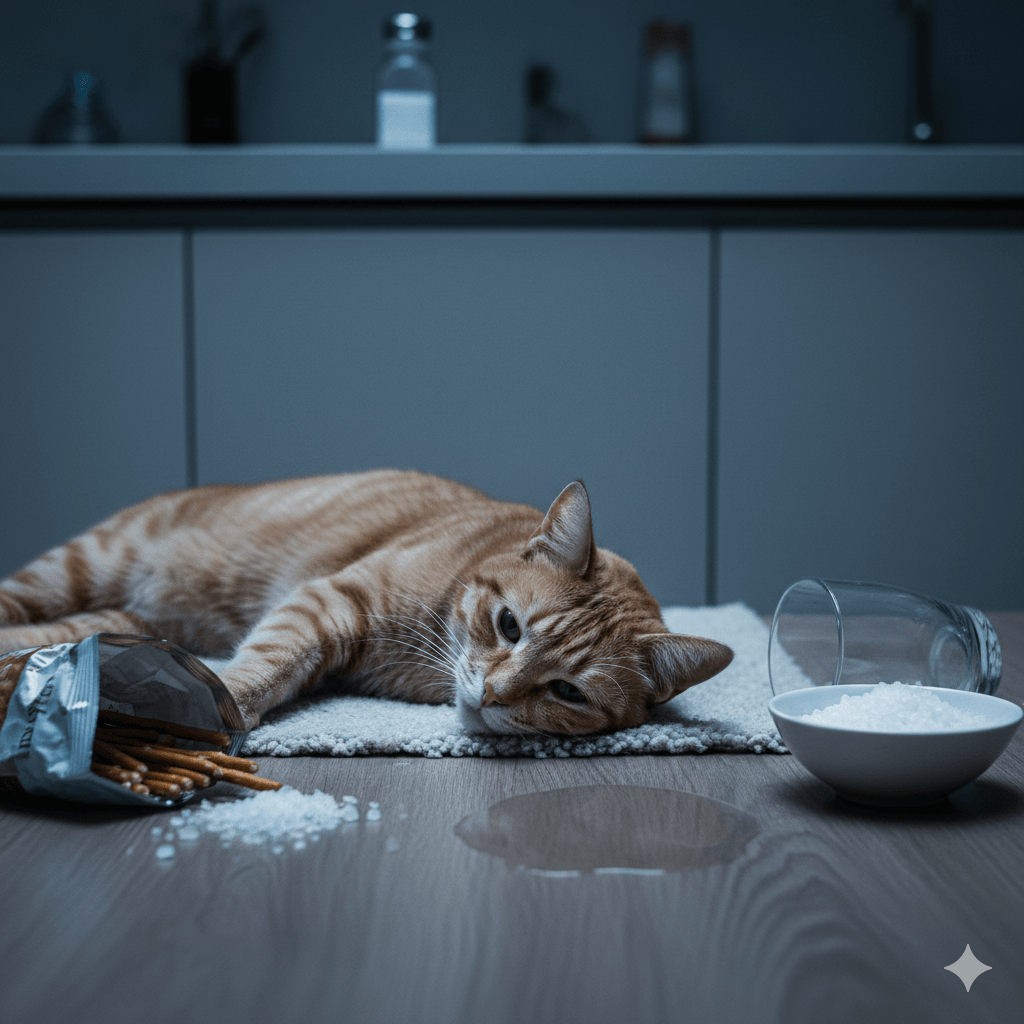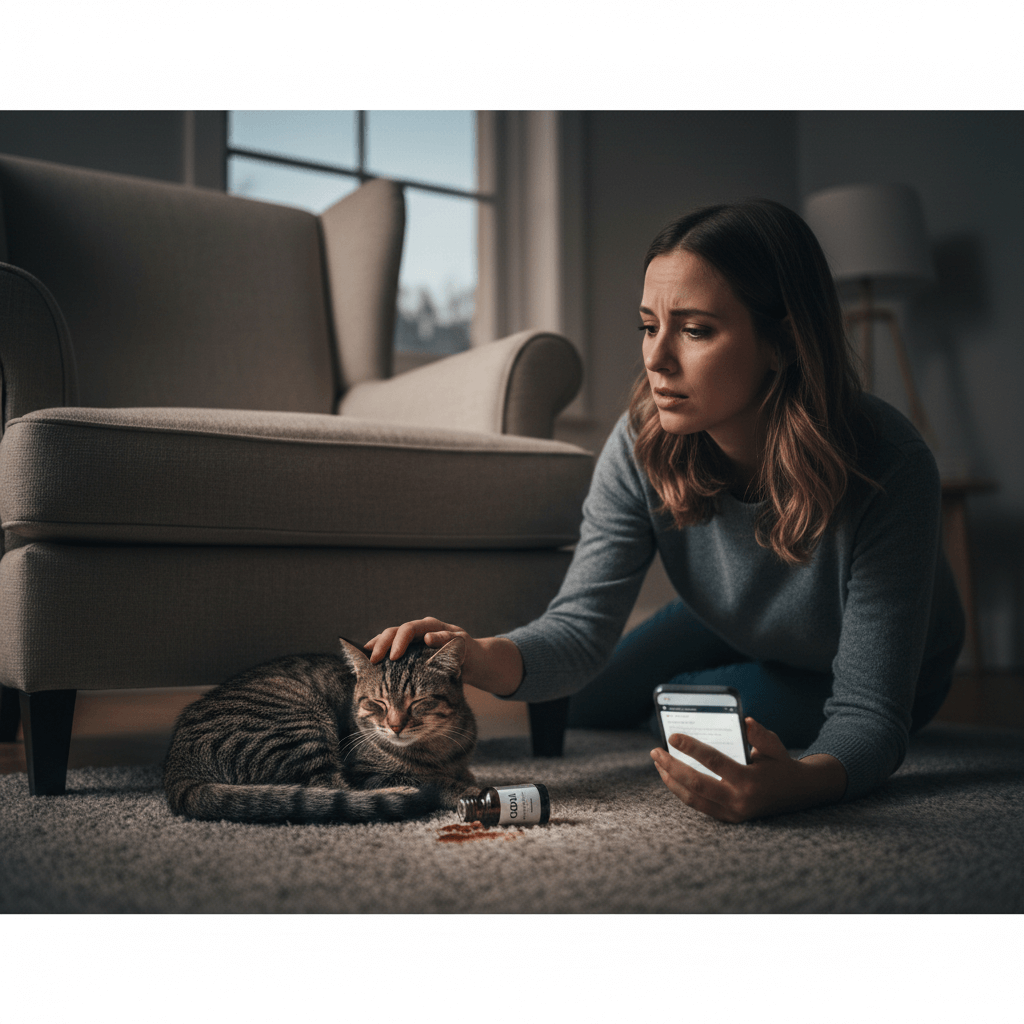Cat Swollen Lymph Nodes: What Every Cat Owner Should Know
As a cat owner, noticing any unusual changes in your feline friend’s body can be concerning, especially when it comes to something as significant as swollen lymph nodes. Lymph nodes are an essential part of your cat’s immune system, and their enlargement can indicate an underlying health issue. While swollen lymph nodes may not always signify a serious problem, they should never be ignored. In this blog post, we’ll explore the causes, symptoms, and treatment options for cat swollen lymph nodes, helping you understand what to look for and how to respond. By being informed, you can ensure your cat receives the care they need to stay healthy and happy.
Common Causes of Swollen Lymph Nodes in Cats
Swollen lymph nodes in cats can result from a variety of conditions, ranging from mild infections to more serious illnesses. Understanding the potential causes can help you identify the issue early and seek appropriate care. Here are some common reasons for lymph node enlargement:
Bacterial Infections
Infections such as abscesses or dental disease can trigger localized swelling in nearby lymph nodes.Viral Infections
Viruses like feline leukemia (FeLV) or feline immunodeficiency virus (FIV) can weaken the immune system and cause lymph nodes to swell.Fungal Infections
Fungal diseases, such as cryptococcosis, can lead to systemic inflammation and swollen lymph nodes.Cancer
Lymphoma or other types of cancer can cause persistent lymph node enlargement, often accompanied by weight loss or lethargy.Allergic Reactions
Severe allergies or hypersensitivity to certain substances may result in temporary lymph node swelling.
Identifying the underlying cause is crucial for determining the appropriate treatment plan for your cat.
Signs That Your Cat May Have Swollen Lymph Nodes
Detecting swollen lymph nodes in cats requires careful observation, as they may not always be visible or obvious. However, there are certain signs that can alert you to this condition. Here’s what to watch for:
Visible Lumps Under the Skin
You may feel or see small, firm lumps under your cat’s jaw, neck, or hind legs where lymph nodes are located.Lethargy and Weakness
Cats with swollen lymph nodes often appear unusually tired or less active than usual.Loss of Appetite
A decrease in appetite or refusal to eat can accompany lymph node swelling due to discomfort or illness.Fever or Elevated Temperature
An elevated body temperature may indicate an infection or inflammatory response.Behavioral Changes
Irritability, hiding, or reluctance to interact can signal that your cat is feeling unwell.
If you notice any of these signs, it’s important to consult your veterinarian promptly for a thorough examination.
Check this guide 👉Understanding Cat Swollen Paw: Best 7 Health Tips!
Check this guide 👉Cat Face Swollen: Best 7 Expert Tips!
Check this guide 👉Why Is My Cats Tail Swollen at the Base? Best 7 Tips!

Symptoms of Swollen Lymph Nodes | Possible Underlying Causes |
|---|---|
Visible lumps under the skin | Bacterial or fungal infections |
Lethargy and weakness | Viral diseases like FeLV or FIV |
Loss of appetite | Cancer or severe systemic illness |
Fever | Immune system overreaction |
Behavioral changes | Allergies or stress-related responses |
How Vets Diagnose Swollen Lymph Nodes in Cats
When you bring your cat to the vet for swollen lymph nodes, a series of diagnostic steps will help determine the underlying cause. Here’s what the process typically involves:
Physical Examination
The vet will palpate the lymph nodes to assess their size, texture, and location.Blood Tests
Complete blood counts (CBC) and chemistry panels can reveal signs of infection, inflammation, or organ dysfunction.Fine Needle Aspiration
A small sample of cells from the lymph node may be extracted and examined under a microscope.Imaging Tests
X-rays or ultrasounds can help identify abnormalities in internal organs or tissues.Biopsy
In some cases, a biopsy may be necessary to confirm a diagnosis, especially if cancer is suspected.
These diagnostic tools allow veterinarians to pinpoint the root cause and develop an effective treatment plan.
Treatment Options for Swollen Lymph Nodes in Cats
Once the underlying cause of your cat’s swollen lymph nodes has been identified, treatment can begin. The approach depends on the specific diagnosis but often includes the following options:
Antibiotics
For bacterial infections, antibiotics are prescribed to eliminate the infection and reduce inflammation.Antiviral Medications
In cases of viral infections, antiviral drugs or supportive care may be recommended.Anti-Inflammatory Drugs
Medications like corticosteroids can help reduce swelling and alleviate discomfort.Surgery or Chemotherapy
If cancer is diagnosed, surgical removal of affected lymph nodes or chemotherapy may be necessary.Supportive Care
Nutritional support, hydration therapy, and pain management can improve your cat’s overall well-being during recovery.
Early intervention and adherence to the treatment plan are key to ensuring the best possible outcome for your cat.
Preventive Measures to Reduce the Risk of Swollen Lymph Nodes
Taking preventive steps can help reduce the likelihood of your cat developing swollen lymph nodes due to infections or other health issues. Here are some practical measures you can implement:
Regular Veterinary Check-Ups
Schedule annual or biannual vet visits to catch potential health problems early.Vaccinations
Ensure your cat is up-to-date on vaccinations, such as those for feline leukemia (FeLV) and rabies.Dental Hygiene
Brush your cat’s teeth regularly or provide dental treats to prevent infections that could affect lymph nodes.Parasite Control
Use flea, tick, and worm prevention products to protect your cat from parasites that may cause infections.Healthy Diet
Feed your cat a balanced diet rich in nutrients to support their immune system and overall health.
By taking these preventive measures, you can minimize the risk of conditions that lead to swollen lymph nodes and keep your cat healthier in the long run.
How to Support Your Cat During Recovery
If your cat is undergoing treatment for swollen lymph nodes, there are ways you can support their recovery at home. Here are some tips to help them heal comfortably:
Provide a Quiet Space
Create a calm, stress-free environment where your cat can rest without disturbances.Monitor Their Appetite
Encourage eating by offering their favorite foods or warming up meals to enhance the aroma.Keep Them Hydrated
Ensure fresh water is always available, and consider using a pet water fountain to encourage drinking.Administer Medications as Directed
Follow your vet’s instructions carefully when giving medications to avoid complications.Watch for Side Effects
Keep an eye out for adverse reactions to treatments, such as vomiting or lethargy, and report them to your vet.
By providing attentive care and creating a supportive environment, you can help your cat recover more quickly and comfortably.
When to Seek Emergency Veterinary Care
While many cases of swollen lymph nodes can be managed with routine veterinary care, some situations require immediate attention. Here are signs that indicate you should seek emergency care for your cat:
Difficulty Breathing
Labored breathing or wheezing can signal a severe underlying issue that needs urgent treatment.Sudden Collapse
If your cat collapses or becomes unresponsive, take them to the vet immediately.Severe Pain
Excessive vocalization, aggression, or avoidance behavior may indicate intense pain.Uncontrollable Bleeding
Bleeding from the lymph nodes or other areas requires immediate medical intervention.Extreme Lethargy
A cat that is completely unresponsive or unable to move may be critically ill.
Recognizing these emergency signs and acting quickly can save your cat’s life and prevent further complications.
Frequently Asked Questions About Swollen Lymph Nodes in Cats
Are swollen lymph nodes in cats always serious?
Not always, but they often indicate an underlying issue that requires veterinary attention.
Can I check my cat’s lymph nodes at home?
Yes, gently feeling areas like the neck or hind legs can help you detect abnormalities, but a vet should confirm any findings.
How long does it take for swollen lymph nodes to go down?
It depends on the cause; with proper treatment, improvement may occur within days to weeks.
Is lymphoma common in cats?
Yes, lymphoma is one of the most common cancers in cats and can cause persistent lymph node swelling.
What should I do if my cat’s lymph nodes are swollen?
Schedule a vet appointment immediately to determine the cause and begin treatment.
Final Thoughts: Staying Proactive About Your Cat’s Health
Swollen lymph nodes in cats are a clear sign that something is amiss, whether it’s a minor infection or a more serious condition. As a responsible pet owner, staying vigilant and seeking prompt veterinary care can make all the difference in your cat’s prognosis. By understanding the causes, symptoms, and treatment options, you’re better equipped to advocate for your furry companion’s well-being. Remember, early detection and intervention are key to managing health issues effectively. With love, attention, and timely medical care, you can help your cat overcome challenges and enjoy a long, happy life by your side.
Poodle Water Dog: Best 7 Expert Tips! – Discover how Poodles excel in water activities, from swimming to training, and unlock their aquatic potential today.
Salt Poisoning in Cats: Best 7 Expert Tips! – Learn the dangers of salt toxicity, spot symptoms early, and discover how to keep your cat safe from this serious health risk.
Salt Poisoning in Dogs: Best 7 Expert Tips! – Learn the dangers of salt toxicity, recognize symptoms, and discover life-saving steps to protect your dog.
Can Too Much CBD Kill a Cat? Best 7 Expert Tips! – Discover the risks, safe dosages, and signs of CBD toxicity to keep your cat safe and healthy.





